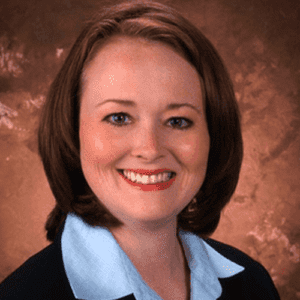
The purpose of this blog is to stimulate thought and discussion about important issues in healthcare. Opinions expressed are those of the author and do not necessarily express the views of CMDA. We encourage you to join the conversation on our website and share your experience, insight and expertise. CMDA has a rigorous and representative process in formulating official positions, which are largely limited to bioethical areas.
Waiting
September 24, 2019
by Autumn Dawn Galbreath, MD, MBA
Waiting…I’m terrible at it. My guess is I’m not the only one. In fact, among an audience of healthcare professionals, I feel certain the terrible wait-ers make up the majority. We are generally goal-oriented, focused, committed, get-her-done sort of people. Just the sort of people for whom waiting is an agony. When we are waiting, something is beyond our control. It might be a little thing, like waiting for a delayed plane, or it might be a big thing, like waiting for the salvation and return of a prodigal child. Either way, we are limited in our ability to affect the outcome. Even as we continue to do what we can to bring about a result, there is some aspect of the situation we cannot know or change. All we can do is wait.
I generally organize my life to minimize the amount of waiting I am forced to do. I show up for carpool at the latest possible moment so I won’t have to sit in my car and wait. I take reading material or a hobby everywhere I go so I have something to focus on should I find myself with free time. I pay for TSA precheck so I don’t have to wait in the security line at the airport. If there is a way to eliminate open-ended waiting, you can bet I have done it. And yet, despite my intense desire to avoid it, waiting appears to be a central part of God’s work in our lives.
The Psalmist mentions waiting for the Lord repeatedly, and his waiting is a lot different from mine. When I do have to wait, I do it impatiently. Even angrily, sulkily or resentfully. The Psalmist, on the other hand, waits “expectantly” for the Lord to respond to his requests (Psalm 5:3). He waits in hope (Psalm 33:20) and in strength (Psalm 27:14). He waits patiently (Psalm 37:7) and with a certainty that God will answer (Psalm 38:15). Isaiah, who also does quite a bit of waiting in the Old Testament, waits in trust (Isaiah 8:17).
Why is their waiting so different from mine? I suspect it has to do with the foundation their waiting was built on. While my foundation is often shaky and distracted, theirs was firmly built on their experience with God and their understanding of His character.
The Psalmist had seen the Lord’s power to meet him in his place of waiting: “I waited patiently for the LORD; he turned to me and heard my cry. He lifted me out of the slimy pit, out of the mud and mire; he set my feet on a rock and gave me a firm place to stand. He put a new song in my mouth, a hymn of praise to our God. Many will see and fear and put their trust in the LORD” (Psalm 40:1-3, NIV 1984).
And Isaiah had seen the Lord’s character of grace and compassion: “Yet the LORD longs to be gracious to you; he rises to show you compassion. For the LORD is a God of justice. Blessed are all who wait for him!” (Isaiah 30:18, NIV 1984).
Why is it that I, after almost half a century of following the same God these men followed, consistently default to bad waiting rather than trustful waiting? It’s tempting to say it’s because these men were somehow closer to God or had more access to Him than I do, but I know that’s not true. They lived in Great Waiting—not knowing God’s ultimate plan of redemption, but having to trust that God would, in fact, redeem. I live after the cross of Christ has already won the ultimate victory over death and shown God’s plan of redemption in human form. And I am indwelt with the Holy Spirit—I literally have the very presence of God with me wherever I go. And yet I struggle against the waiting and the not-knowing.
As I reflect, I think my failure to wait is actually a failure to remember. Our forerunners in faith failed to remember, and every time they forgot, they stopped waiting for the Lord. From Adam and Eve succumbing to the serpent’s lies, to the Israelites and their golden calf, to the Israelites grumbling and hoarding manna in the wilderness, the Bible is filled with people who allowed themselves to forget what God had done. And when they forgot, suddenly they were anxious to take control and bring about an outcome that seemed good to them. Suddenly, waiting on the Lord did not seem to them an act of trust, strength or expectation, but rather a delay to be avoided at all costs. And every single example of people “getting ahead of God,” which is what happens when we refuse to wait for Him, ends in a suboptimal outcome.
Maybe I, with my post-Calvary perspective and the Holy Spirit and the whole of Scripture repeating this lesson to me, need to sit up and listen. And remember. And wait.
“But they who wait for the LORD shall renew their strength; they shall mount up with wings like eagles; they shall run and not be weary; they shall walk and not faint” (Isaiah 40:31, ESV).

